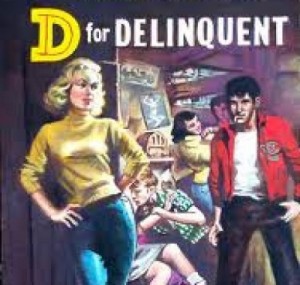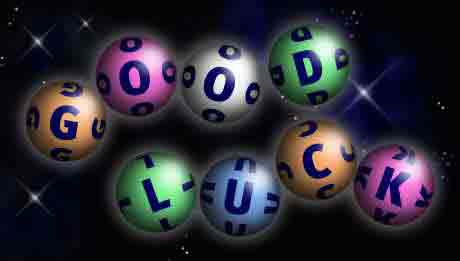pdf: hope,faith, charity, lottery
(written by me in 2000)
Balls
Goodness and luck have nothing to do with it (as Mae West almost said)
Reflections on the Lottery and the hope invested in its promise by the consumer
Outside of mass struggle – and nowadays that seems to be almost all the time – we are constantly niggled with an anxious envy, constantly confronted with forces which compare our lot with those who are better off. After the defeats of the riots of the mid-1980s, which were in part against the gentrification of working class areas, the poor have been ever increasingly titillated by displays of what has been stolen from them, whether in the form of wealthy people living close to them or endless stories about millionaires, especially those who have won the Lottery.
The obsessive fantasy of winning a lot of money is the most common need produced by this society, a fantasy lifeboat on the Titanic. For a pound (though often for a lot more) the Lottery gives you your very own ‘personal’ dream. When compared with the amount of money people spend on the more ‘objective’ anaesthetics, like movies, novels, CDs or computer games, this seems fairly “reasonable”. The self-managed dream in your head within a world terrorised by the need for money, is all the more seductive for seeming to be individual. But one can judge how individual such a fantasy is by the poverty of imagination of what that fractionally minute minority of people who win the lottery do when they win. The consumerist heaven they enter turns out to be very lonely. It’s an individualised, largely passive and non-productive, form of a radical and realisable desire: the productive, creative, and communitarian leisure made technically possible for all by a rational use of some aspects of modern technology, but utterly repressed and distorted by the commodity economy. The dream of not having the worry of work has a radical side to it: this society always represents real radical desires in terms which corrupt their meaning. So bollocks to all that moralism by those who disapprovingly dismiss Lottery-players as simply “greedy”, as those who “want something for nothing”, those rich people who publicise the miserable resentment that winning the Lottery breeds, or those who see in Lottery players just the stupidity of grotesque illusions. Unless such criticism is linked to social movements that could, long term, realise the fantasies that the Lottery can only represent, all these attitudes can only be hypocritical, the hierarchical contempt of those who are very well off.
And they miss the point. There are many Lottery players who are well aware of the silliness of their dreams even though the dominant pro-Lottery media wants to make them feel ‘positive’ about such dreams. This is one of the main problems of the Lottery: the constant torment of knowing your fantasies of winning are utterly unrealistic and at the same time cutting yourself off by indulging in purely subjective internal meanderings. It’s one of the extra things that add to alienation whilst giving people a dream of somehow escaping the worst of alienation (the dream of being miserable in comfort, the dream of the enormous relief of having the weight and terrible anxiety of survival hassles off your back). And the ideologists of the Lottery, who say it’s “just a bit of fun”, deliberately ignore the fact that this bit of fun ends up not being at all fun for the millions of disappointed players who kick themselves afterwards for their stupidity in half-believing they could maybe possibly win.
Unlike in Orwell’s “1984”, where the publicised winners of Big Brother’s lottery didn’t actually exist, in real life real people win – another example of how much subtler modern totalitarianism is than could ever have been envisaged 50 years ago or more. Of course, it’s the poor made good by the Lottery that get the most publicity – all the better to entice the rest with “It could be you” or the slightly less religious “Maybe, just maybe”. The belief in a fine hairbreadth’s of a chance mushrooms internally into a constant nagging obsession. This ‘realistic’ tiny fragment of hope is meant to be the eternally out-of-reach tasty carrot numbing you to the ever-present painful stick. But it often doesn’t work out that way: the split between the sad reality and the dream becomes like a constant self-torture. Although winning objectively has a 14 million to one chance (i.e. an odds-on chance of winning every 200 millenium), subjectively saying this mathematical equation has as much effect as scientific proof of God’s non-existence, or stating that there is no life after death, or refuting the belief that extra-terrestrials will come and save mankind. If more and more people wallow in these fantasies it’s partly because the struggle against a world which requires fantasy seems to have been lost, at least for the foreseeable future. Reason disarmed cannot rid people of their illusory fantasies. In a life outside of the individual’s control, fantasy is the plaster over the gaping wound of a life in full retreat. That’s why a money version of religious illusions constantly multiplies in everyone’s thoughts. People fantasise that “It could be me”, that they could somehow be ‘chosen’ because they, subjectively, are deserving. Some people get given publicity because they’ve prayed to win the Lottery as a solution to their financial crises (the tens of millions who are financially desperate but who are never going to win but still pray aren’t given publicity of course. Who wants to know about such inevitable disappointments?). As the hope of a life after death recedes, a crudely economistic materialised fantasy of a vaguely possible paradise out of reach at the moment takes over. But the real gamble has yet to be played out…
Anti-hierarchical revolution? You gotta be in it to win it… It could be you… maybe, just maybe…
 Hits as of 7/8/17:
Hits as of 7/8/17:
943

Leave a Reply